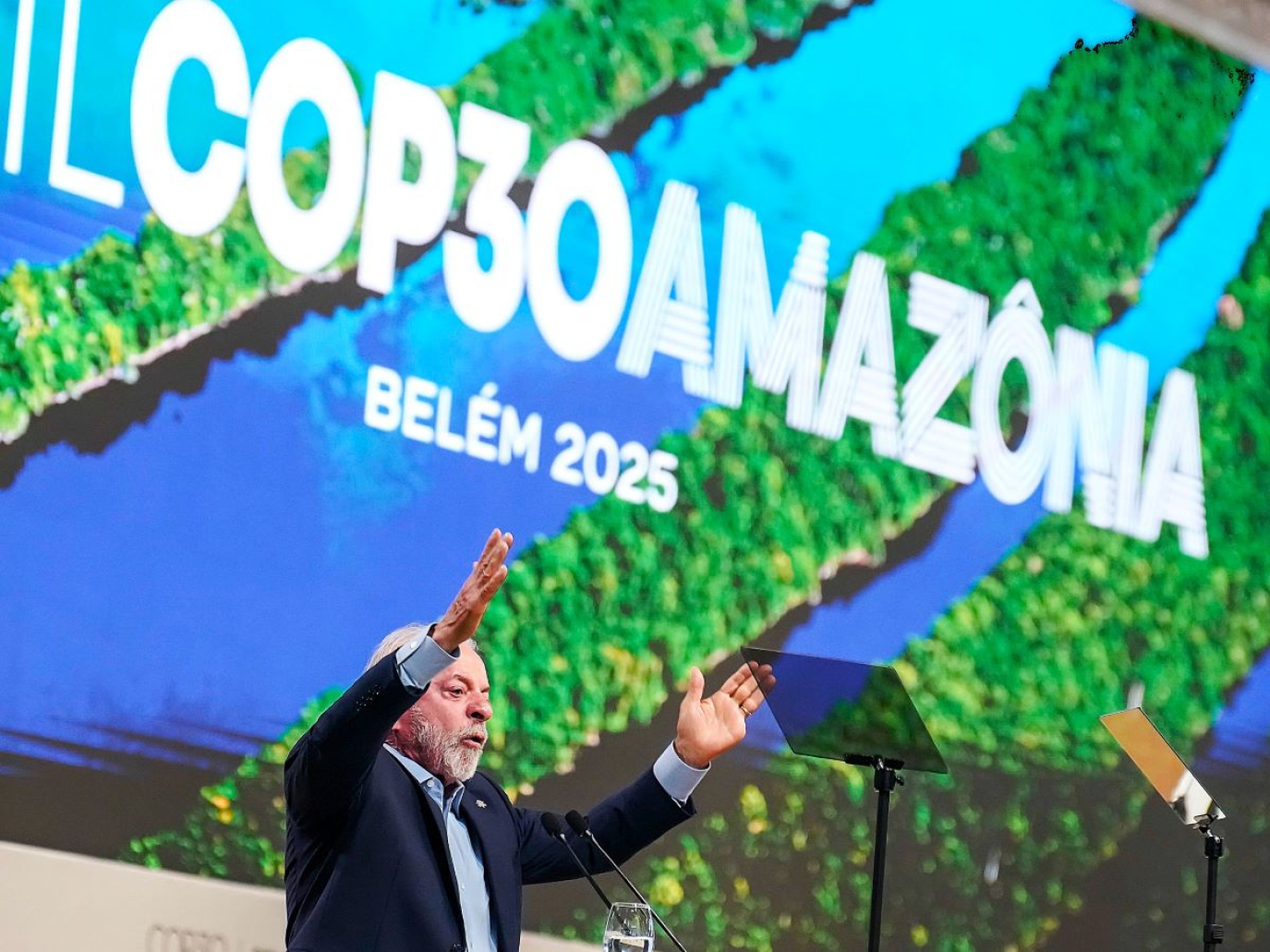
It is Lula's crowning achievement, his political legacy for the Amazon: a mega forest fund, the first of its kind, superior to any previous initiative, including the REDD+ carbon credit mechanism. Its cornerstone, the Tropical Forest Forever Facility (TFFF), was unveiled at the COP30 Leaders' Summit on 6 November in Belém.
Managed by the World Bank, the fund, strongly supported by Lula and conceived as an idea fifteen years ago, aims to raise and invest up to $125 billion from public, private, and philanthropic sources. The returns will go to around 74 developing countries, which will have to adequately manage their forests, stopping fires and deforestation.
It will, in fact, be one of the largest multilateral investment funds for nature. For President Lula, “the Tropical Forest Forever Fund we are launching today is an unprecedented initiative. For the first time in history, the countries of the Global South will take a leading role in the forestry agenda.”
The project has already received support from 53 countries, including 19 sovereign wealth funds, marking a new era of global collaboration between public and private investment. Norway has allocated $3 billion over the next ten years under specific conditions; Brazil and Indonesia have reconfirmed their commitments of $1 billion; Portugal has pledged a symbolic $1 million; France has indicated that, subject to certain conditions, it will consider a commitment of up to €500 million until 2030; the Netherlands has committed $5 million; and Germany will announce its commitment later this week.
Civil society is looking at the TFFF with a mixture of approval and caution. For Carolina Pasquali, Executive Director of Greenpeace Brazil, “The launch of the Tropical Forest Forever Facility is an important milestone for the protection of the world’s tropical forests. The mechanism can and should be improved to address some of its gaps; however, it is a step in the right direction as it values forests standing and guarantees direct access to resources to Indigenous Peoples and local communities. As deforestation rates in the Amazon continue to decrease – 11% compared to the previous period, 50% compared to 2022 – Brazil is in a unique position to build on the momentum and pave the way for parties at COP30 to deliver a global action plan to end deforestation and forest degradation by 2030. But we will only achieve that if other countries step up and do their part.”
How does the Tropical Forest Forever Facility Fund work
The TFFF Fund is split into two entities, with a secretariat coordinating their respective activities. The Facility is the first, tasked with establishing the system of rewards derived from bond profits, the eligibility criteria for projects to be financed, tracking methods and disbursement rules, as well as managing relations and accountability with participating beneficiary countries. The other is the main financial arm of the TFFF, the Tropical Forest Investment Fund (TFIF), in charge of issuing bonds and managing financial resources disbursed by sovereign wealth funds, philanthropic organisations, and private funds.
The main beneficiaries will be Brazil, Colombia, the Democratic Republic of Congo, Ghana, Indonesia, and Malaysia, all of which are important members of the provisional steering committee responsible for defining the development of the TFFF. According to Brazilian Finance Minister Fernando Haddad, “the fund could raise $10 billion as early as next year,” although, as Carbon Brief points out, this would be less than half the initial target.
Preserving the Amazon: an insurmountable challenge?
The challenge, however, is not trivial, even with billions of euros at our disposal (assuming they can be collected). “To stop the destruction of the Amazon rainforest, what is needed is a truly integrated approach, involving even police forces and the army, to control paramilitary militias, organised crime and illegal entrepreneurs,” explains Pietro Graziani, AICS technical coordinator for the EU-funded AMAZON+ regional programme. The situation in the Amazon, as in other rainforests, is out of control: “From illegal logging to species trafficking, from deforestation to create land for coca or soy cultivation to informal gold mining, in many areas the rule of law does not exist,” continues the expert. This situation is harmful not only to the environment, but also to millions of people in local and indigenous communities living in the Amazon. “There are health effects from fires, but also impacts linked to illegal mining, particularly gold mining, responsible for mercury contamination of river waters,” explains Graziani.
There is also the major issue of corruption, according to numerous reports by Amnesty International and the Environmental Law Institute, detailing how criminal networks bribe the police, army, and environmental agencies to circumvent controls and recruit young people from local communities. Certainly, there is no shortage of initiatives to combat international crime, such as Project LEAP (Law Enforcement Assistance Programme to Reduce Tropical Deforestation), a UNODC and INTERPOL initiative that integrates global efforts to combat illegal deforestation. Or again, the COPOLAD programmes against drug trafficking and the El PACTO programme against crime (including environmental crime), both funded by the European Union.
Yet the size and complexity of the Amazon region, and of all large rainforest areas (such as the Congo jungle), make widespread action extremely difficult. ‘In a recent study, we have seen how, when deforestation control measures are taken, it simply moves to another area or another country, due to the phenomenon of cross-border migration of deforestation. It is like a balloon filled with water: you squeeze it, and it moves somewhere else,’ continues Graziani.
Will TFFF's substantial funds succeed in stopping deforestation and fires without fuelling crime or illegal activities, and instead supporting virtuous cooperation projects, indigenous communities and the vibrant network of NGOs and environmental activists in the Amazon basin countries? Part of the success of the Paris Agreement will depend on combating crime and securing areas controlled by drug traffickers and paramilitaries.
Also read: COP30: Time to act for the defenders of the planet
Cover: Lula, photo by Rafa Neddermeyer/COP30 Brasil Amazônia/PR



